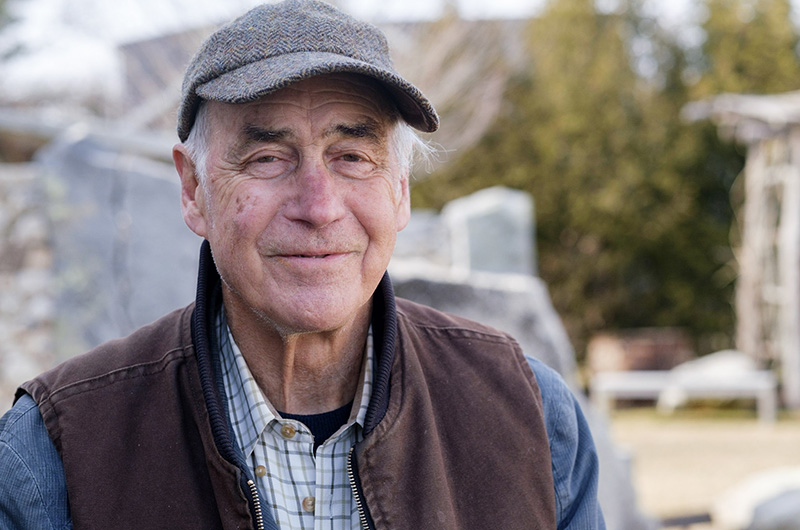When Islanders think about beach erosion, grey seals may not be what comes to mind as a leading cause. But grey seals are top of mind for Crocker Snow Jr., the journalist and conservationist whose family co-owns tiny Muskeget island with the town of Nantucket. The island, which is 10 miles from Chappaquiddick, is now home to the largest colony of grey seals in North America.
But as Mr. Snow and his family like to say, it’s the natural species who own Muskeget; people are only the stewards.
In a talk Saturday at the Martha’s Vineyard Museum, Mr. Snow led a discussion about Muskeget’s changing ecosystem. He described Muskeget as the first cousin to Martha’s Vineyard and the forgotten little brother of Nantucket. The island consists of 250 acres, and its highest point is a mere 15 feet above sea level. Its only inhabitants are birds, fish, beach voles (a subspecies of eastern meadow mole) and grey seals. A Coast Guard boathouse built in 1910 is the sole structure.
The event provided an update to Mr. Snow’s 2015 book Muskeget: Raw, Restless, Relentless Island. The book was updated last year with a chapter asking people familiar with the island — including artist Dana Gaines of Edgartown — to envision what Muskeget will be like in 2050.
Mr. Snow announced that he, along with researchers from NOAA, Tufts University’s veterinary school and the few visitors who access the Island for scientific purposes, cite grey seals as “the headline for Muskeget for the past 20 years.” His presentation included a screening of Unintended Consequences, a short film made by the Seal Abatement Coalition. The film, made in 2016, documents the seals on Muskeget and the impact that seal colonies have on areas nearby, including Great Point, Nantucket’s northernmost point, known for abundant fishing in the past. Grey seals are protected under the Marine Mammal Prevention Act of 1972.
Each year, a “seal riot” associated with the seasonal birth cycle where seal cows give birth to pups and seal bulls mate with a harem of cows, brings an influx of 3,000 to 10,000 grey seals to Muskeget between December and February, Mr. Snow said.
The effect has been knocked-down dunes and flattened beach grass that he described as looking like the shoreline was bulldozed, or Lambert’s Cove Beach after 500 people weighing 300 had pounds dragged themselves across the dunes. Cows are moving farther inland to find freshwater ponds in which to give birth. This has resulted in the death of young pups not strong enough to make it back to saltwater. Mr. Snow and others attending the talk remarked on the smell created by seal excrement and the decaying bodies of the dead pups.
Avian flu is afflicting the island’s species as well. The virus has been found in 20 percent of Muskeget’s seal pups.
Many who attended had visited Muskeget or fished in the waters surrounding it, or were concerned about the impact of climate change on the Cape and Islands. There was active discussion about the area’s changing ecosystem. Some noted the declining presence of herring gulls, disappearing fish in Muskeget Channel and the general decline of fish in waters surrounding the Cape, and an increasingly large colony of seal pups on Noman’s Land. Mr. Snow remarked that no one knows why seals have not yet populated the Vineyard’s shores.
He left his audience with big questions: are species changing Muskeget or is the island changing the species, and is Darwinian evolution being accelerated by climate change?
Questions for all to ponder.








Comments (4)
Comments
Comment policy »